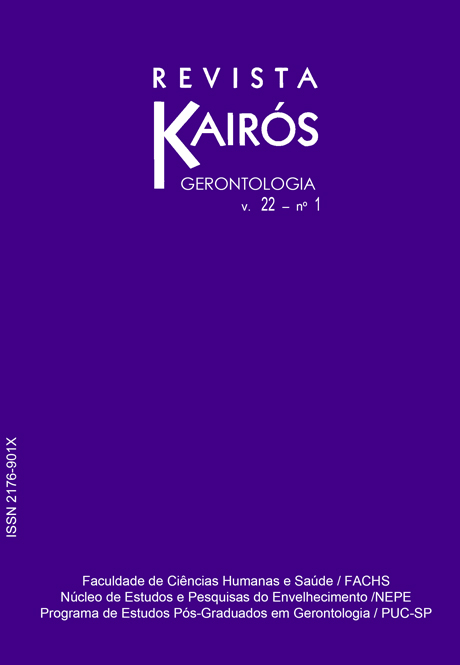Sociocultural indicators and life histories of long-lived elderly: heterogeneity and resignification of habits in old age
DOI:
https://doi.org/10.23925/2176-901X.2019v22i1p291-305Keywords:
Aging, Long-lived Elderly, Cultural Characteristics, Life Histories.Abstract
When conceiving aging as a complex phenomenon characterized by multiple dilemmas and challenges, the aim of this study is justified: to outline the profile of a long-lived elderly sample living in São Paulo, SP, and highlight the articulations of their trajectories and life habits with sociocultural indicators which characterize the context of the coexistence environments, in the perspective of promoting aging with quality of life. The study was carried out by a qualitative approach, using interviews with elderly aged eighty years old and over. The analyses were based on previously defined categories and made it possible to highlight the heterogeneity of perceptions and behaviors motivated by sociocultural stimuli, which instigates the constant remeaning of aging, of old age and of the elderly, considering the quality of life expected.


